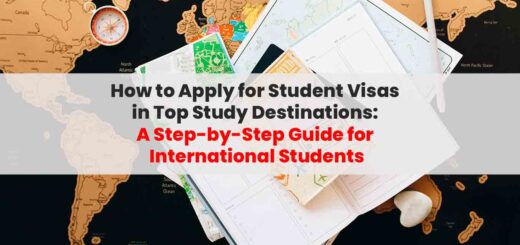Ultimate Guide to Scholarships for International Students from Developing Countries
Pursuing higher education abroad is a dream for many students from developing countries. However, the financial burden often makes it challenging. Scholarships provide a pathway to study at top universities without the stress of tuition fees. In this comprehensive guide, we will explore some of the best scholarship opportunities for international students from developing countries, covering eligibility requirements, benefits, and application processes.
Why Scholarships Are Important for Students from Developing Countries
Studying abroad offers life-changing experiences, but high tuition fees, accommodation costs, and travel expenses are significant barriers. Scholarships make international education accessible, giving students a chance to:
- Access quality education: Scholarships open doors to world-class institutions.
- Improve career prospects: Graduating from a prestigious university can significantly enhance career opportunities.
- Expand cultural perspectives: International students experience diverse cultures, broadening their worldview.
Top Fully Funded Scholarships for International Students
Here are some fully funded scholarships that cover tuition, accommodation, and even living expenses for students from developing countries:
- Chevening Scholarships (UK)
- Eligibility: Open to students from over 160 countries, including many in Africa, Asia, and Latin America. Applicants must have at least two years of work experience.
- Benefits: Full tuition, monthly stipend, travel costs, and more.
- Application Process: Applications are done online through the Chevening portal.
- DAAD Scholarships (Germany)
- Eligibility: Available to students from developing countries who wish to pursue a master’s or PhD in Germany.
- Benefits: Covers full tuition, travel expenses, health insurance, and a monthly stipend.
- Application Process: Apply through the DAAD website, providing proof of academic merit and relevant work experience.
- Fulbright Foreign Student Program (USA)
- Eligibility: Open to international students from 155 countries, including many developing nations. Applicants must have completed their undergraduate degree.
- Benefits: Tuition, airfare, living stipend, and health insurance.
- Application Process: Applications are submitted through your home country’s U.S. embassy or Fulbright office.
- Australia Awards Scholarships
- Eligibility: Offered to students from selected developing countries in Asia, Africa, the Pacific, and the Middle East.
- Benefits: Full tuition, return air travel, living expenses, and health coverage.
- Application Process: Apply online through the Australia Awards website.
Partially Funded Scholarships for Developing Countries
While fully funded scholarships are highly sought after, there are also partially funded options that cover significant portions of tuition costs.
- Commonwealth Shared Scholarships (UK)
- Eligibility: Open to students from low and middle-income Commonwealth countries.
- Benefits: Covers tuition fees and airfare but may not fully cover all living costs.
- Application Process: Apply via the Commonwealth Scholarships Commission website.
- Orange Knowledge Programme (Netherlands)
- Eligibility: Open to students from 53 developing countries to pursue short courses or master’s degrees.
- Benefits: Covers a large portion of tuition and living costs.
- Application Process: Apply through the Dutch institutions offering the program.
How to Apply for Scholarships: A Step-by-Step Guide
Applying for scholarships can be a lengthy process, but with proper planning and organization, you can increase your chances of success. Here’s a step-by-step guide:
- Research scholarships early: Start researching scholarships at least one year before your intended study start date.
- Prepare necessary documents: Most scholarships require academic transcripts, proof of English proficiency (IELTS/TOEFL), and recommendation letters.
- Tailor your application: Make sure your personal statement or essay aligns with the scholarship’s goals.
- Submit before the deadline: Double-check the deadlines and ensure all documents are submitted correctly.
- Follow up: Some scholarship boards require an interview; prepare for this by reviewing common questions.
Tips for Boosting Your Chances of Winning Scholarships
- Maintain high academic performance: Most scholarships require excellent academic records. Aim to keep a GPA of 3.5 or above.
- Gain relevant work experience: Many scholarships prefer candidates with leadership or volunteer experience.
- Tailor your essay: Personalize your essay to reflect the scholarship’s mission and values.
- Apply to multiple scholarships: Increase your chances by applying to several scholarships instead of focusing on one.
Frequently Asked Questions (FAQs)
1. Can I apply for scholarships before being accepted into a university?
Yes, many scholarships require you to apply first and then secure admission afterward.
2. Do scholarships cover living expenses?
Fully funded scholarships often cover tuition, accommodation, and living expenses. Partially funded scholarships may only cover tuition fees.
3. What are the common eligibility requirements for scholarships?
Eligibility criteria typically include academic excellence, financial need, and leadership potential. Some scholarships may require work experience or proficiency in English.
Conclusion
For students from developing countries, scholarships represent a key to unlocking opportunities for higher education. By applying to the scholarships mentioned in this guide, you can achieve your dream of studying abroad without the burden of financial constraints. Remember to start your research early, apply to multiple programs, and tailor your applications for the best chance of success.


